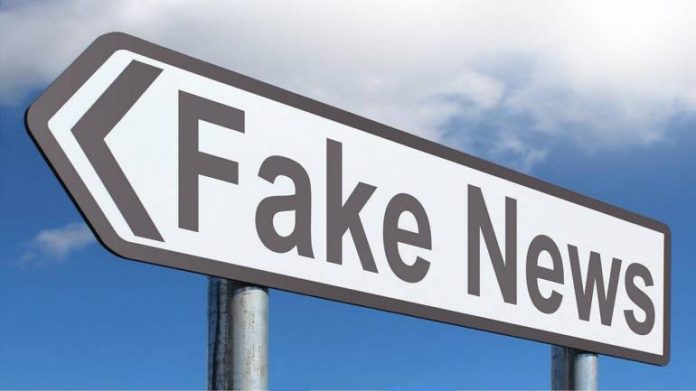Table of Contents
Introduction
The spread of fake news has caused economic and political instability in specific regions. Some people create and spread false information to ruin the reputation of other people and organizations. Millions of web users get information from various social media platforms. Some governments have created laws to control the spread of fake news on social media. Read on to learn more about it.
The Specter of Overreach
India, the Philippines, and Myanmar started regulating online content after misinformation started causing tension and political unrest. It is difficult for social media platforms to regulate fake news without getting support from governments. They advocate for free speech and open internet. For example, Mark Zuckerberg talked about the coronavirus outbreak earlier this month. He stated that Facebook is committed to removing conspiracy theories and false claims.
Chinatown, Singapore has few people in recent days due to the COVID-19 outbreak. Critics claim that some countries are using the outbreak to justify their legislation. Instead, they should address misinformation through other ways without limiting free speech.
The Government of Singapore is deliberating on creating a law that will target fake news in encrypted applications like WhatsApp. Tech firms cannot read messages although the law covers social media platforms. The new law allows state ministers to determine fake news and instruct social media sites to remove misinformation that threatens the integrity of elections, the public’s view of the government and security threats.
Discriminating Unjustifiable and Justifiable Content
Some people believe that creating laws against fake news is a challenge to nations that lack freedom of speech and electoral integrity. But, first world countries like Germany are struggling to enforce laws that don’t target admissible content.
Germany passed a law against fake news on January 1, 2018. It targets different social media sites like Twitter and Facebook. The law requires such platforms to delete fake information and hate speech posts in a day. The government will fine any platform that violates the law up to €50 million. But it has started reviewing the law since some justifiable information is locked in these platforms. Facebook sponsors a deepfake detection challenge by giving awards and funds to researchers who innovate new methods of detecting doctored videos.
The Association of German Journalists has criticized the law. They claim that social media platforms are not publishing information that might be misinterpreted under fake news law. It will increase the self-censorship of information in the future.
Fake news is a major concern for the Australian government. Many people cannot distinguish between justifiable and unjustifiable content. For example, during the last federal election held in May, fake news claimed that the Labor Party wanted to introduce a death tax on Facebook. Rumors claimed that the Liberal Party adopted the news in attack ads. Even so, the Australian parliament hasn’t passed a law against fake news. Instead, they have been urging social media sites to remove fake news in time.

Media and Propaganda Regulation
The Government of Bangladesh created a new bill in October 2018 that regulates propaganda. Anyone found spreading fake news about the 1971 war when Bangladesh won its independence from Pakistan will be imprisoned. The bill bans people from posting frightening content on social media. Journalists in the Asian nation are concerned about the law, according to The Economist.
In August 2019, the police arrested one photographer for spreading propaganda after supporting a student protest. He might be imprisoned for seven years for violating the law, according to Freedom House. The government has detained several web users since it passed the bill. The Dhaka Tribune published that the state arrested 22 people on cybercrime charges since November 2019. Later, Twitter and Facebook deleted fake pages and accounts that posted about the government.
Election Misinformation
The Federal Police announced on January 9, 2018, that it has created a task force to identify and punish people who publish fake news in Brazil. The move targeted misinformation about the October 2018 Brazilian presidential election. Emmanuel Macron, the French President has put several measures to prevent the spread of electoral misinformation. Agencia Publica has collected 20 draft bills from the Brazilian Congress by May 11, 2018. They focused on banning the spread of propaganda online a few days to the general election. Individuals who violate the bill will pay a fine of R$1,500 or face eight years imprisonment.
The Brazilian government signed a deal with Google and Facebook in 2018. It required the two platforms to control misinformation that third parties create and spread, according to The Rio Times. Even so, the document excludes any new projects that Google and Facebook will start in Brazil.
Luis Fux, the Brazilian Supreme Court Justice signed another agreement with local political parties in June 2018. The Superior Electoral Court created a multimedia fact-checking webpage that listed clarifications that people circulated before the 2018 Brazilian presidential election.
Misinformation Control
Burkina Faso’s parliament passed a law in June 2019 that prohibits the spread of fake news about human rights, terrorist attacks, destruction of property and security operations. Offenders will be jailed for 10 years or pay a fine of £7,000. Several rights groups criticized the law claiming that it will prevent journalists from reporting about national security.
Cambodia stepped up its fight against misinformation before the July 2018 general election. The government passed a law in May 2018 that allowed it to block media that threatens the country’s security. Offenders will face a two years jail term or pay a $1,000 fine for spreading misinformation. Three state ministers will check all social media posts, according to The Guardian. Many Cambodians have a murky understanding of how the government defines fake news.
A member of the ruling party said in 2018 that the law applies to media stations that spread misinformation. The Cambodian government launched a television program early last year that will address fake news.
Fake news spread on social media can reach millions of people. For instance, misinformation about the 2016 US presidential election influenced some voters to defect from supporting Barack Obama to Hillary Clinton. France, Germany, Russia, Malaysia, and Singapore are some of the countries that have passed laws against fake news.
LawSikho has created a telegram group for exchanging legal knowledge, referrals and various opportunities. You can click on this link and join:
 Serato DJ Crack 2025Serato DJ PRO Crack
Serato DJ Crack 2025Serato DJ PRO Crack










 Allow notifications
Allow notifications


